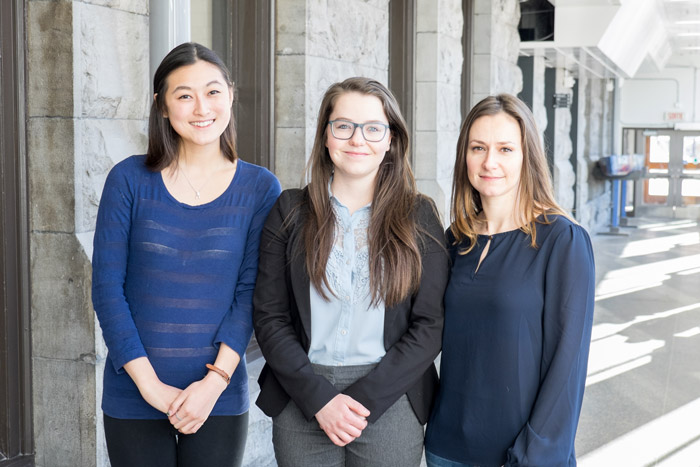A chapter of Scientista, a group dedicated to empowering pre-professional women in science, technology, engineering, and math (STEM) fields has just launched at McGill. After noticing a lack of resources available for women in higher education, Julia and Christina Tartaglia, biology students at Harvard University, founded the Scientista Foundation in 2011. With chapters across the United States and now Canada, the group aims to empower women across the STEM disciplines through creating a strong, cohesive network.
“At the most basic level, this is a way to connect [women] across all the STEM fields,” Mayte Parada, co-director of the McGill Scientista chapter explained. “[To] have people to talk to and hang out with and discuss problems and help get their careers going [and] prevent them from dropping out.”
There’s a lot to be said about the challenges facing women in science. The ‘leaky pipeline’ model is often used to describe the way women disappear from the STEM fields. As the metaphor goes, at all stages of post-secondary education, from undergraduate to the doctorate and post-doc levels, women are increasingly less likely to emerge at the top professional and principal investigator (PI) career level, effectively ‘leaking’ out of the career pipe.
Consider the gender breakdown at McGill’s own Integrated Program in Neuroscience (IPN). Female participation drops from 62.5 per cent at the masters level to only 26 per cent representation of female tenured professors. The leaky pipeline has proved to be a persistent and pervasive problem for women interested in high-level STEM careers.
“Women start these careers or start grad school and they just don’t have too many role models to go with,” Parada said. “They just have their lab […] and if there aren’t too many people in the lab to go to, they don’t really know where else to go.”
McGill’s Scientista chapter plans to create networks and support systems for the women in STEM on campus, from the undergraduate to the PI level.
“I feel like there are a lot of women, especially in math and computer science, that are just looking for support,” Jenn Laura Lee, co-director of the Montreal chapter, described. “[For example] if you go to a pub crawl for physics it’s just overwhelmingly male.”
The McGill chapter aims to develop relationships across all levels of the STEM fields. It plans to pair upper level mentors with younger female students to foster personal relationships so that the younger students have someone they can ask questions and get advice from.
“It’s super important to be able to see people who have done it and know that it’s possible,” Lee said.
With the help of their faculty advisor Assistant Professor Alanna Watt from the Department of Biology, the chapter plans to highlight discussions on balancing family with high-level STEM careers.
“A lot of women actually do think about [it]—they may not talk about it, but they do think about it,” Parada said. “[For example] if I go to grad school, how is [working] going to affect me if I get married or if I want to start a family? And I think for a lot of women, this becomes a problem later on.”
Parada and Lee hope to create a space that facilitates the kind of informal positive interactions that both have experienced between females in the McGill science programs.

“It is interesting that the dynamics of post-doc-student, or PI-student relationships when they are both female […] is subtly different in certain ways,” Lee explained. “It can be very, very supportive.”
Creating connections between the different members of the science community at McGill is something both co-directors envision. Ultimately, Scientista endeavours to take action against the leaky pipeline.
“It’s a constructive thing to do, rather than just being upset,” Lee said.










Pingback: Vixen Watch for March 19, 2016 – vixenwatch